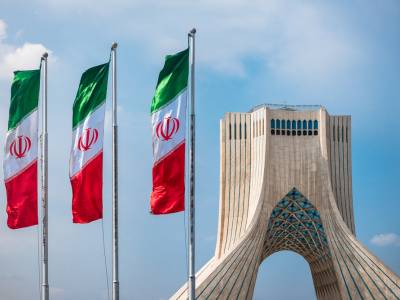-
Québec
Québec’s New Transparency Rules for Businesses’ Ultimate Beneficial Owners
24 May 2023
- Compliance
- Investments
Summary
The Loi visant principalement à améliorer la transparence des entreprises came into force in Québec on March 31, 2023, imposing new obligations on businesses in the province. The law requires businesses to disclose information about their ultimate beneficial owners (UBOs) to the Registraire des entreprises. UBOs are individuals who possess voting rights, fair market value of shares, or de facto control over the business. Certain entities are exempt from disclosing their UBOs. The information disclosed will be accessible to the public, except for the date of birth and, in some cases, the home address.
On March 31, 2023, the Loi visant principalement à améliorer la transparence des entreprises (Act mainly to improve the transparency of enterprises) came into force in Québec, imposing new obligations for businesses in the province.
The new law modifies the Loi sur la publicité légale des entreprises (Act respecting the legal publicity of entreprises) and seeks to increase corporate transparency, namely by requiring businesses to provide to the Registraire des entreprises (the “REQ”) information about their bénéficiaires ultimes, i.e. ultimate beneficial owners (“UBO”).
An UBO is, namely, any individual who:
- possesses at least 25% of voting rights;
- possesses at least 25% of the fair market value of all shares; or
- has enough influence to exercise de facto control of the business.
All UBOs of a business must be disclosed, although some entities such as non-profit organizations, legal persons established in public interest, public corporations, financial institutions and trust companies are not required to disclose their UBOs. For every UBO, the following information is required to be communicated to the REQ:
- names and aliases;
- home address (and optionally, business address);
- date of birth;
- type of control exercised or percentage of shares, interests, or units held;
- date at which he/she became an UBO and date at which he/she ceased to be one.
Most of this information will be accessible to the public, with the exceptions of the date of birth and, in cases where a business address is provided, the home address. The names and home addresses of minors are also hidden from public access.
By providing access to shareholder information, the Province of Québec was already the only Canadian corporate jurisdiction that required public disclosure of the names and domiciles of the three principal shareholders. The province again takes the lead by forcing disclosure of corporations’ UBOs. For now, in the rest of Canada, the identity of UBOs for privately held companies is not a matter of public record.
Entities doing business in Québec should ensure to conduct a proper examination of their organizational structure, so as to correctly and fully disclose the information required by the new transparency rules. Any failure to do so can lead to immediate revocation of the business’ registration under the REQ, as well as to fines ranging from CAD 1,000 to CAD 40,000.
The new rules only require the businesses themselves to take the necessary measures to confirm the identities of their UBOs. Professional advisers do not have any due diligence obligations in this regard.
The purpose of this post is to provide information about (i) the need of Brazilian companies for providing the Country-by-Country Reporting pursuant to the OECD Rules, Action 13 of the Base Erosion and Profit Shifting Actions (“BEPS Actions”) and (ii) the need to disclose the name of the final beneficial owner of entities with equity participation in Brazilian companies, or owners of assets in Brazil.
Country-by-Country Reporting Regulation
Normative Instruction RFB No. 1681 (“IN 1681/2016”) established the rules for the Brazilian companies to be compliant with the Country-by-Country Reporting Regulation (“CbCR”). The CbCR shall be presented annually considering the financial results of the previous fiscal year, as part of the fiscal declaration (ECF, which includes the information related to the corporate tax income return). Such declaration should be filled in accordingly with the list of mandatory information determined by IN 1681/2016 and pursuant to RFB Normative Instruction No. 1,422, of December 19, 2013.
The CbCR is the result of the BEPS Project (Base Erosion and Profit Shifting) of the OECD’s initiative, contained in Action 13 of the BEPS Actions, aiming the enhancement of transparency while taking into consideration compliance costs.
Multinational groups are obliged to deliver the CbCR if consolidated revenues for the fiscal year preceding the tax year of the declaration are equal to or greater than BRL 2.26 billion (or 750 million Euros, or if the local currency of the final controller of the group is equivalent to the mentioned amounts, as of January 31, 2015).
The Brazilian subsidiary is (or may be considered) a substitute of the final controller and, as such, bound to fulfill the CbCR in the following cases:
- it is the final controller of the multinational group is not obliged to deliver the CbCR in its jurisdiction of residence;
- the jurisdiction where the ultimate controller is located has signed an international agreement with Brazil, however, still not ratified by the competent authorities before the deadline for delivering the CbCR; or
- there has been a systemic failure of the jurisdiction of residence of the final controller of the multinational group that has been notified by the Brazilian Federal Revenue Office to the resident entity for tax purposes in Brazil.
In case the Brazilian subsidiary is exempt from submitting the CbCR, it will still need to provide the identification and the jurisdiction of residence for tax purposes of its parent company.
The deadline for providing the information will be the date for completing the ECF, to expire on 30 July 2018 for the fiscal year 2017. Failure to comply will expose the Brazilian subsidiary to the payment of a penalty of BRL 1,500.00 (USD 410 or EUR 340) per month. Submission of an incomplete CbCR may subject the Brazilian subsidiary a fine of 3% over the value omitted, inaccurate or incomplete.
Need to disclose beneficial ownership and how to do it
Brazilian companies are obliged to provide information on the person authorized to represent them, on the respective chain of equity interest, until the individuals characterized as final beneficial owner.
This information shall be provided when a Non-Brazilian entity present its application to obtain the Federal Corporate Taxpayers’ Registry (“CNPJ”). If the Non-Brazilian entity already has a CNPJ, it must update the CNPJ with the beneficial owner information by 31 December 2018.
Obtaining a CNPJ is mandatory for Non-Brazilian entities that have equity participation in Brazilian companies or other assets – financial investments, real estate, airplanes, ships, among others in Brazil.
This obligation is in force by means of the Brazilian Federal Revenue Office Normative Instruction No. 1634 (“IN 1634/2016“). IN 1634/2016 contains a list of information to be provided and documents to be delivered for that purpose.
On October 25, 2017, the procedure became mandatory also for Brazilian entities after publication of the ADE COCAD (Executive Declaratory Act – Registration Management General Coordination) No. 9/2017.
Fail to comply with the procedure can result in suspension of the CNPJ. This suspension could result in inability to execute bank transactions, financial investments and obtaining loans and, ultimately, prevent the remittance of dividends to other countries or even the receipt of funds by means of a loan or capital injection from the respective parent companies abroad.
Such information is not protected under fiscal secrecy, but the public employees shall not disclose this information pursuant to functional obligation of not disclosing information unless if summoned by court order.
The requirement for presenting the information on the beneficial owner is already familiar for investors in Brazil. The Brazilian financial institutions are responsible for obtaining information of their client up until the beneficial owner, pursuant to Circular Letter No. 3.461/2009 of the Brazilian Central Bank. The information provided to financial institutions are subject to bank secrecy.
These Brazilian financial institutions are severe on the provision and updating on the foreign parent companies. It is usual for companies with foreign shareholders to receive notices and warnings of possible blocking or closing the accounts if the required documents are not presented in full.
The author of this article is Paulo Yamaguchi
Contact Québec’s New Transparency Rules for Businesses’ Ultimate Beneficial Owners
Brazil – Reporting and Disclosure of final beneficial owner
9 October 2018
-
Brazil
- Compliance
- Corporate
Summary
The Loi visant principalement à améliorer la transparence des entreprises came into force in Québec on March 31, 2023, imposing new obligations on businesses in the province. The law requires businesses to disclose information about their ultimate beneficial owners (UBOs) to the Registraire des entreprises. UBOs are individuals who possess voting rights, fair market value of shares, or de facto control over the business. Certain entities are exempt from disclosing their UBOs. The information disclosed will be accessible to the public, except for the date of birth and, in some cases, the home address.
On March 31, 2023, the Loi visant principalement à améliorer la transparence des entreprises (Act mainly to improve the transparency of enterprises) came into force in Québec, imposing new obligations for businesses in the province.
The new law modifies the Loi sur la publicité légale des entreprises (Act respecting the legal publicity of entreprises) and seeks to increase corporate transparency, namely by requiring businesses to provide to the Registraire des entreprises (the “REQ”) information about their bénéficiaires ultimes, i.e. ultimate beneficial owners (“UBO”).
An UBO is, namely, any individual who:
- possesses at least 25% of voting rights;
- possesses at least 25% of the fair market value of all shares; or
- has enough influence to exercise de facto control of the business.
All UBOs of a business must be disclosed, although some entities such as non-profit organizations, legal persons established in public interest, public corporations, financial institutions and trust companies are not required to disclose their UBOs. For every UBO, the following information is required to be communicated to the REQ:
- names and aliases;
- home address (and optionally, business address);
- date of birth;
- type of control exercised or percentage of shares, interests, or units held;
- date at which he/she became an UBO and date at which he/she ceased to be one.
Most of this information will be accessible to the public, with the exceptions of the date of birth and, in cases where a business address is provided, the home address. The names and home addresses of minors are also hidden from public access.
By providing access to shareholder information, the Province of Québec was already the only Canadian corporate jurisdiction that required public disclosure of the names and domiciles of the three principal shareholders. The province again takes the lead by forcing disclosure of corporations’ UBOs. For now, in the rest of Canada, the identity of UBOs for privately held companies is not a matter of public record.
Entities doing business in Québec should ensure to conduct a proper examination of their organizational structure, so as to correctly and fully disclose the information required by the new transparency rules. Any failure to do so can lead to immediate revocation of the business’ registration under the REQ, as well as to fines ranging from CAD 1,000 to CAD 40,000.
The new rules only require the businesses themselves to take the necessary measures to confirm the identities of their UBOs. Professional advisers do not have any due diligence obligations in this regard.
The purpose of this post is to provide information about (i) the need of Brazilian companies for providing the Country-by-Country Reporting pursuant to the OECD Rules, Action 13 of the Base Erosion and Profit Shifting Actions (“BEPS Actions”) and (ii) the need to disclose the name of the final beneficial owner of entities with equity participation in Brazilian companies, or owners of assets in Brazil.
Country-by-Country Reporting Regulation
Normative Instruction RFB No. 1681 (“IN 1681/2016”) established the rules for the Brazilian companies to be compliant with the Country-by-Country Reporting Regulation (“CbCR”). The CbCR shall be presented annually considering the financial results of the previous fiscal year, as part of the fiscal declaration (ECF, which includes the information related to the corporate tax income return). Such declaration should be filled in accordingly with the list of mandatory information determined by IN 1681/2016 and pursuant to RFB Normative Instruction No. 1,422, of December 19, 2013.
The CbCR is the result of the BEPS Project (Base Erosion and Profit Shifting) of the OECD’s initiative, contained in Action 13 of the BEPS Actions, aiming the enhancement of transparency while taking into consideration compliance costs.
Multinational groups are obliged to deliver the CbCR if consolidated revenues for the fiscal year preceding the tax year of the declaration are equal to or greater than BRL 2.26 billion (or 750 million Euros, or if the local currency of the final controller of the group is equivalent to the mentioned amounts, as of January 31, 2015).
The Brazilian subsidiary is (or may be considered) a substitute of the final controller and, as such, bound to fulfill the CbCR in the following cases:
- it is the final controller of the multinational group is not obliged to deliver the CbCR in its jurisdiction of residence;
- the jurisdiction where the ultimate controller is located has signed an international agreement with Brazil, however, still not ratified by the competent authorities before the deadline for delivering the CbCR; or
- there has been a systemic failure of the jurisdiction of residence of the final controller of the multinational group that has been notified by the Brazilian Federal Revenue Office to the resident entity for tax purposes in Brazil.
In case the Brazilian subsidiary is exempt from submitting the CbCR, it will still need to provide the identification and the jurisdiction of residence for tax purposes of its parent company.
The deadline for providing the information will be the date for completing the ECF, to expire on 30 July 2018 for the fiscal year 2017. Failure to comply will expose the Brazilian subsidiary to the payment of a penalty of BRL 1,500.00 (USD 410 or EUR 340) per month. Submission of an incomplete CbCR may subject the Brazilian subsidiary a fine of 3% over the value omitted, inaccurate or incomplete.
Need to disclose beneficial ownership and how to do it
Brazilian companies are obliged to provide information on the person authorized to represent them, on the respective chain of equity interest, until the individuals characterized as final beneficial owner.
This information shall be provided when a Non-Brazilian entity present its application to obtain the Federal Corporate Taxpayers’ Registry (“CNPJ”). If the Non-Brazilian entity already has a CNPJ, it must update the CNPJ with the beneficial owner information by 31 December 2018.
Obtaining a CNPJ is mandatory for Non-Brazilian entities that have equity participation in Brazilian companies or other assets – financial investments, real estate, airplanes, ships, among others in Brazil.
This obligation is in force by means of the Brazilian Federal Revenue Office Normative Instruction No. 1634 (“IN 1634/2016“). IN 1634/2016 contains a list of information to be provided and documents to be delivered for that purpose.
On October 25, 2017, the procedure became mandatory also for Brazilian entities after publication of the ADE COCAD (Executive Declaratory Act – Registration Management General Coordination) No. 9/2017.
Fail to comply with the procedure can result in suspension of the CNPJ. This suspension could result in inability to execute bank transactions, financial investments and obtaining loans and, ultimately, prevent the remittance of dividends to other countries or even the receipt of funds by means of a loan or capital injection from the respective parent companies abroad.
Such information is not protected under fiscal secrecy, but the public employees shall not disclose this information pursuant to functional obligation of not disclosing information unless if summoned by court order.
The requirement for presenting the information on the beneficial owner is already familiar for investors in Brazil. The Brazilian financial institutions are responsible for obtaining information of their client up until the beneficial owner, pursuant to Circular Letter No. 3.461/2009 of the Brazilian Central Bank. The information provided to financial institutions are subject to bank secrecy.
These Brazilian financial institutions are severe on the provision and updating on the foreign parent companies. It is usual for companies with foreign shareholders to receive notices and warnings of possible blocking or closing the accounts if the required documents are not presented in full.
The author of this article is Paulo Yamaguchi

















